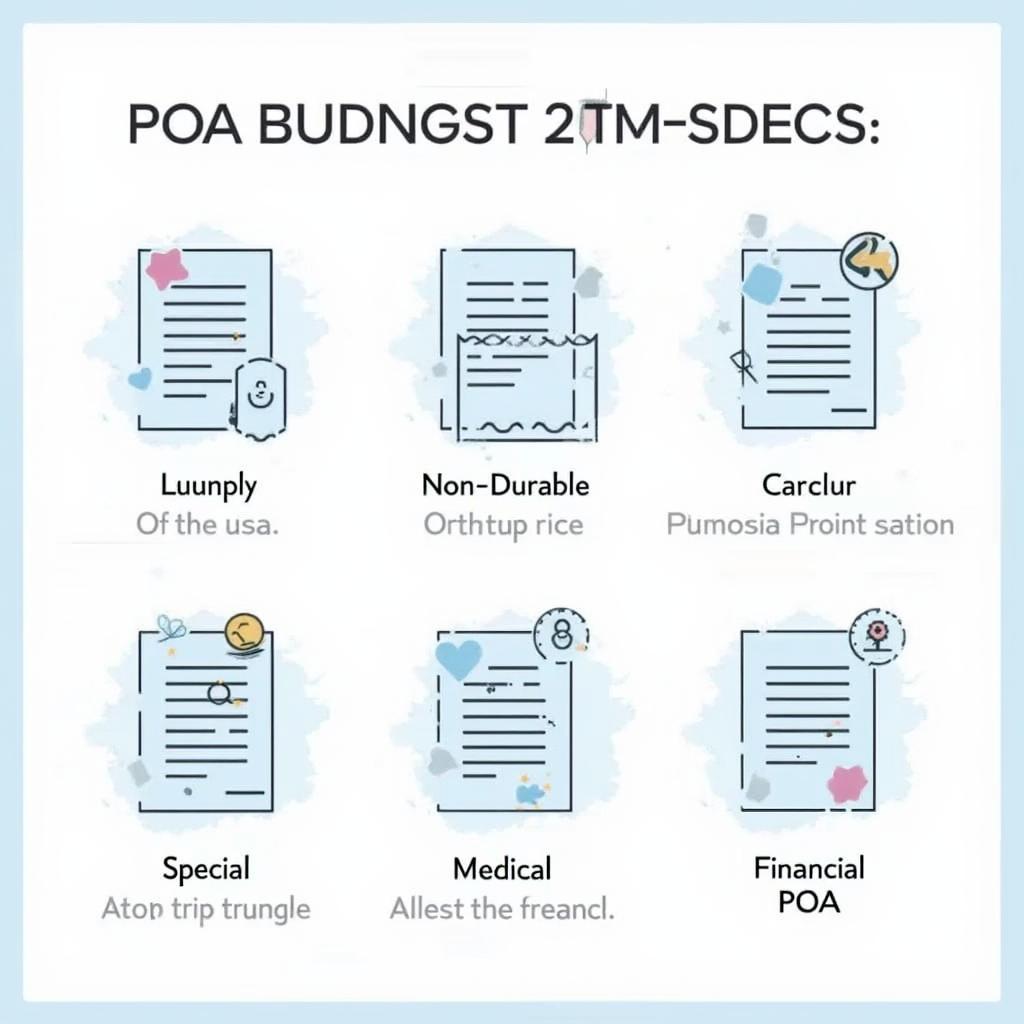
How to Find Power of Attorney Records
Locating power of attorney (POA) records can be crucial for various legal and financial matters. Whether you’re managing the affairs of a loved one, verifying someone’s authority, or settling an estate, knowing how to find these documents is essential. This article provides a comprehensive guide on how to find power of attorney records, navigating the various methods and resources available.
A power of attorney is a legal document that authorizes one person (the agent or attorney-in-fact) to act on behalf of another (the principal). This authority can be broad, encompassing financial and legal decisions, or limited to specific actions. Understanding how to locate these records is critical for ensuring legal compliance and protecting the rights of all parties involved. Similar to finding information on an attorney general of california address, locating POA records often requires specific steps.
Where are Power of Attorney Records Kept?
The location of POA records varies depending on the type of POA and the jurisdiction. There’s no single national registry for POAs. This makes the search process more complex but not insurmountable. Here are the common places where you might find these records:
- County Recorder’s Office: Many jurisdictions require POAs, especially durable POAs relating to real estate, to be recorded in the county where the principal resides or owns property.
- Secretary of State’s Office: In some states, the Secretary of State’s office maintains a registry of certain types of POAs.
- Court Records: If the POA was used in a court proceeding, a copy might be included in the case file.
- Principal’s Personal Records: The principal should have the original POA document and any copies. Their attorney or financial advisor might also retain a copy.
- Online Databases: Some companies offer online databases of recorded documents, which may include POAs, for a fee. However, coverage varies.
 Searching for Power of Attorney Records in a County Office
Searching for Power of Attorney Records in a County Office
How to Find a Power of Attorney for a Parent with Dementia
Finding a POA for a parent with dementia can be especially important if they can no longer manage their affairs. Knowing how to locate the document allows you to legally step in and assist them. For detailed information, see our guide on how to get power of attorney for parent with dementia. Start by checking their personal files and contacting any attorneys or financial advisors they may have worked with.
Different Types of Power of Attorney
Understanding the different types of POA is essential for an effective search. Here are some common types:
- Durable POA: Remains in effect even if the principal becomes incapacitated.
- Non-Durable POA: Terminates if the principal becomes incapacitated.
- Special or Limited POA: Grants the agent authority for a specific purpose or a limited time.
- Medical POA or Healthcare Proxy: Authorizes an agent to make medical decisions on behalf of the principal.
- Financial POA: Authorizes an agent to manage the principal’s finances.
 Different Types of Power of Attorney Documents
Different Types of Power of Attorney Documents
What if I Can’t Find the Power of Attorney Record?
If your initial search is unsuccessful, don’t give up. There are additional steps you can take:
- Contact Family Members or Close Friends: They may have knowledge of the POA’s existence or location.
- Hire a Private Investigator: A professional investigator can conduct a more thorough search.
- Consult an Attorney: An attorney directory ny can help if you are in New York, or seek legal advice in your jurisdiction. An attorney can advise you on the legal implications of not finding a POA and potential alternative solutions. You might also consider a free attorney consultation in new jersey if that’s where you reside.
“Finding a power of attorney can be like searching for a needle in a haystack, but persistence and knowing where to look are key,” says Nguyen Thi Hong, a seasoned estate planning attorney in Ho Chi Minh City. “Don’t hesitate to seek professional help if you’re struggling to locate the document.”
 Consulting an Attorney about Power of Attorney
Consulting an Attorney about Power of Attorney
Conclusion
Finding power of attorney records requires a systematic approach and understanding of the different resources available. By following the steps outlined in this article, you can increase your chances of locating the document and ensuring you have the necessary legal authority to act. Don’t delay in seeking professional help if needed. Finding the power of attorney is crucial for protecting the interests of both the principal and the agent.
“Having a clear understanding of the different types of POAs is essential for an effective search. Don’t underestimate the value of consulting with an experienced attorney for guidance,” advises Tran Van Nam, a prominent legal expert specializing in elder law in Hanoi.
FAQ
- What is a power of attorney? A legal document authorizing someone to act on behalf of another person.
- Where can I find power of attorney records? County recorder’s office, Secretary of State, court records, principal’s personal records, online databases.
- What are the different types of POA? Durable, non-durable, special, medical, financial.
- What if I can’t find the POA? Contact family/friends, hire a private investigator, consult an attorney.
- Is there a national registry for POAs? No, there isn’t a single national registry.
- Who should I contact if I need help finding a POA? An attorney specializing in estate planning or elder law can assist.
- Is an attorney review necessary for a POA? While not always mandatory, an attorney’s review can help ensure the document is legally sound and meets the principal’s needs. For reviews on attorneys, you can look at resources like attorney brian white personal injury lawyers houston reviews.




